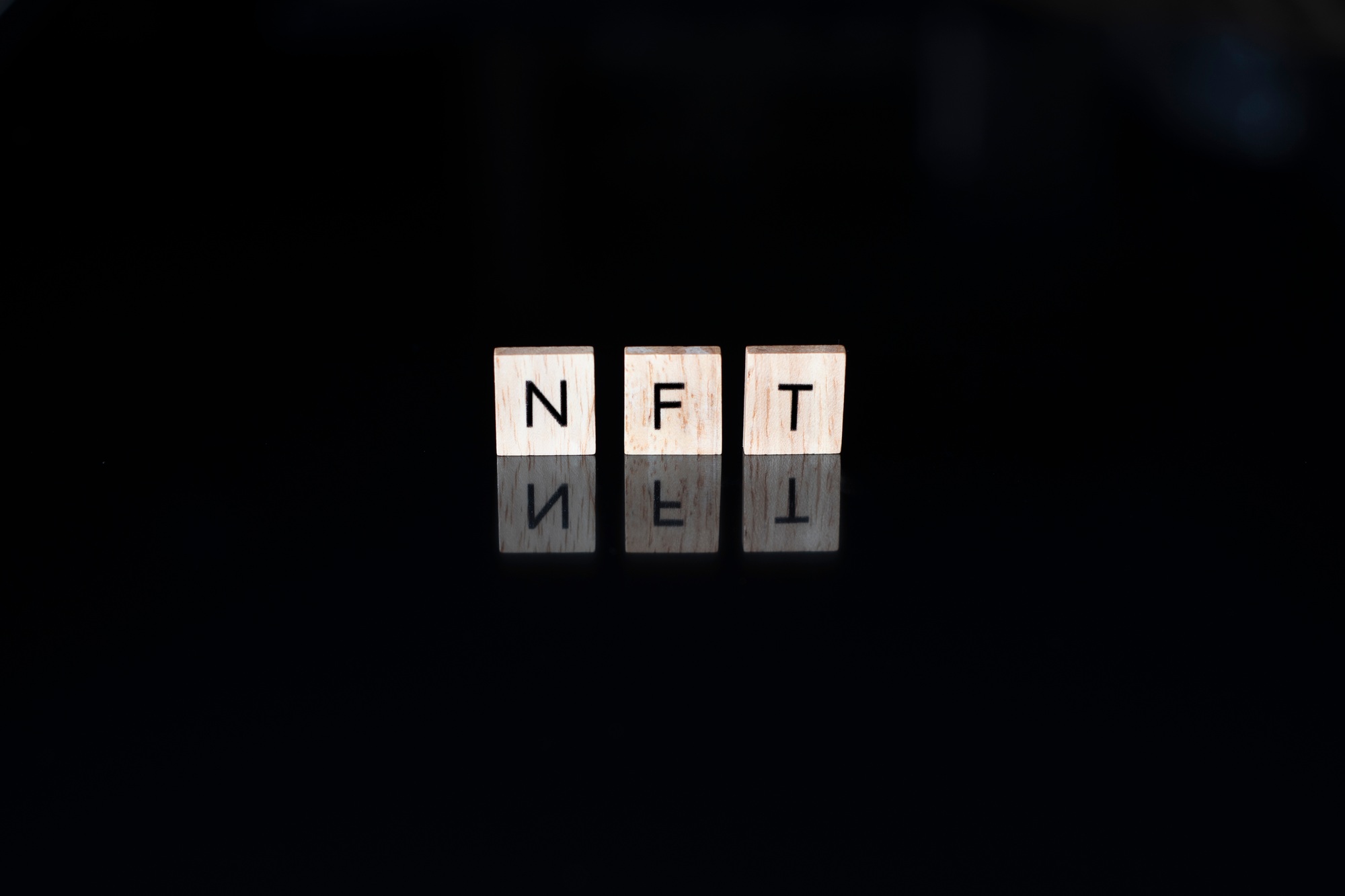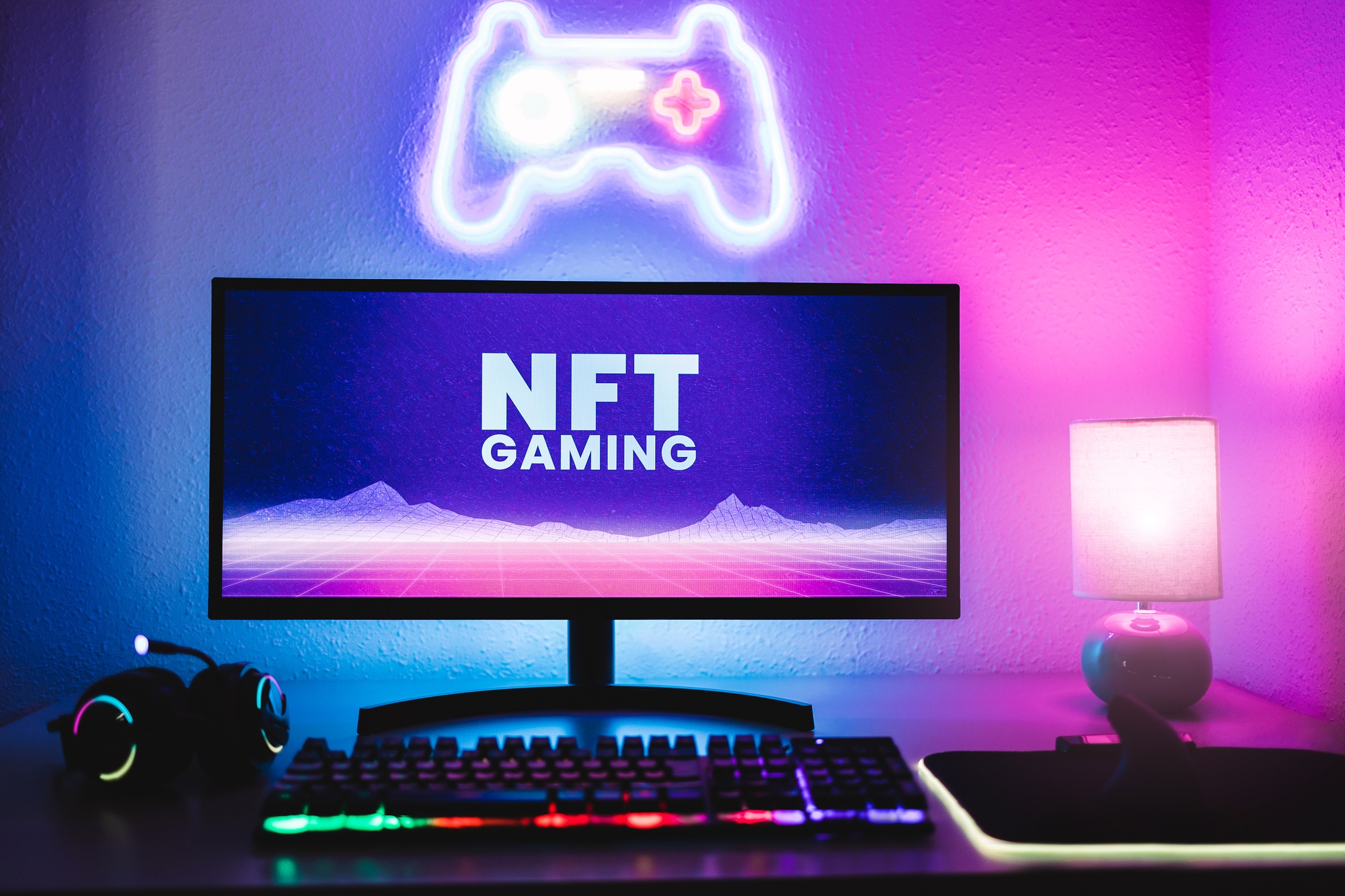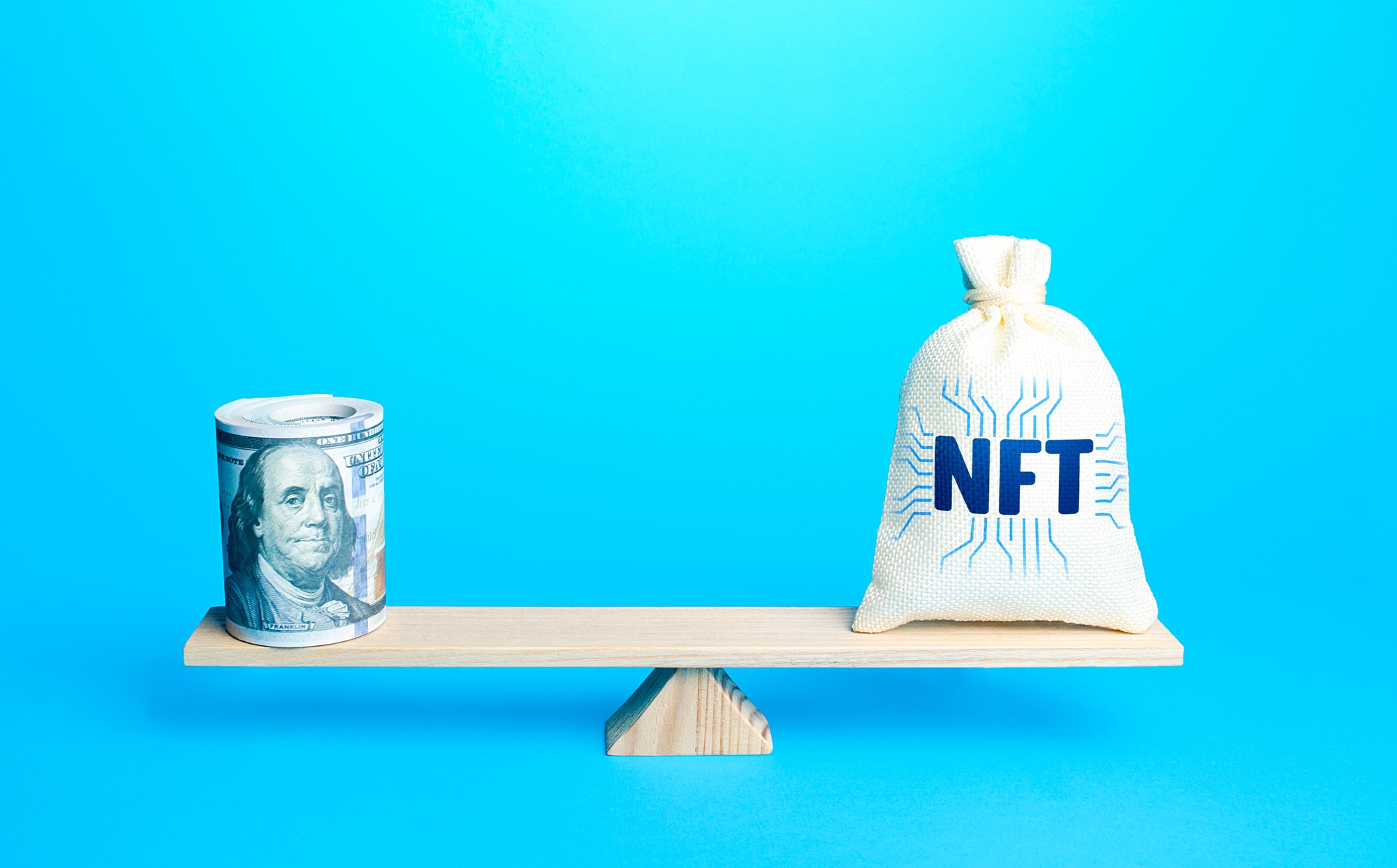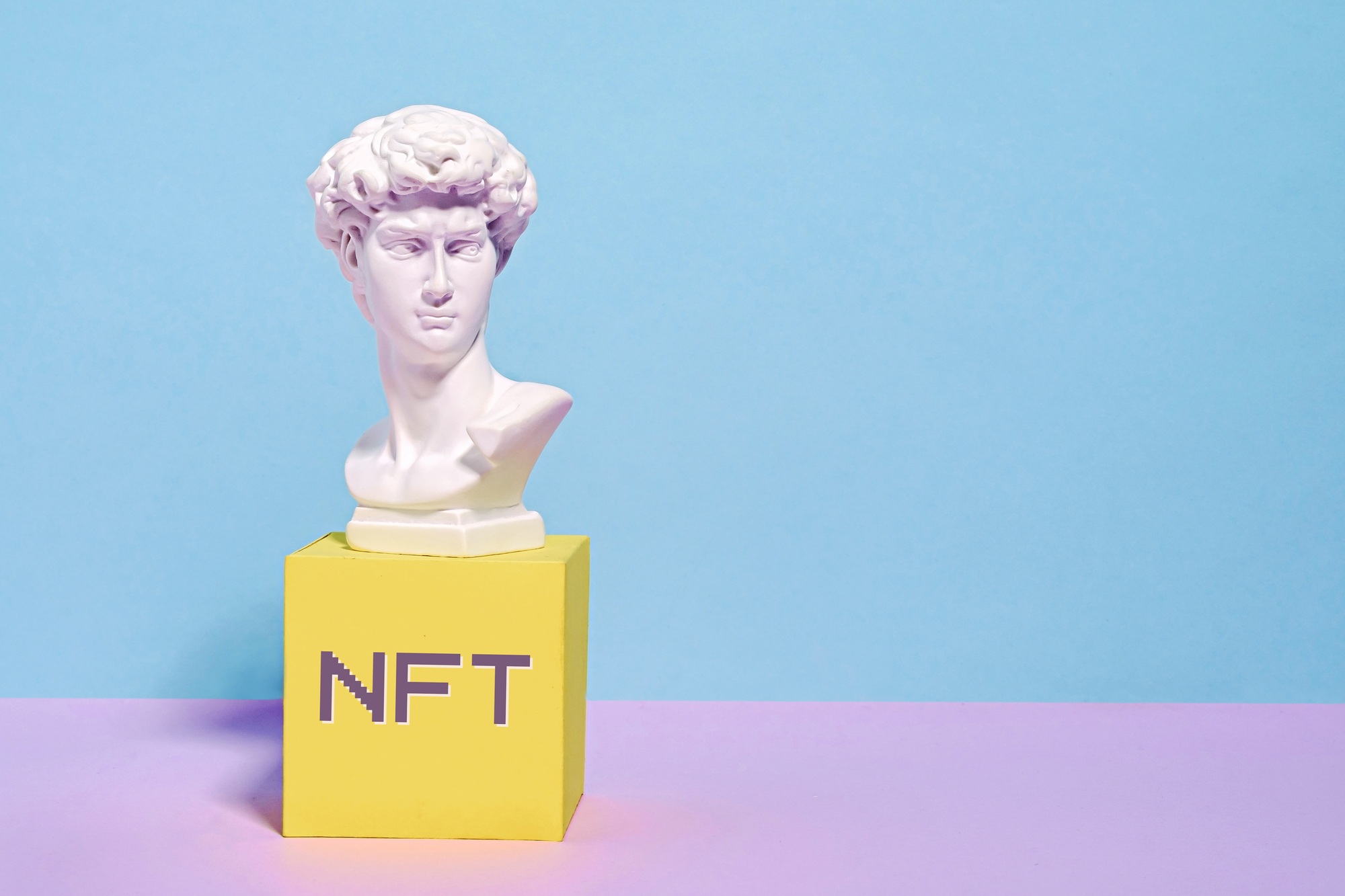Key Takeaways

- Understanding NFTs: Non-fungible tokens (NFTs) are unique digital assets that authenticate ownership of items on the blockchain, providing distinct identities unlike interchangeable cryptocurrencies.
- Evolution and Milestones: The history of NFTs began with colored coins and evolved through key milestones, including the launch of Ethereum, CryptoKitties, and dedicated NFT marketplaces, transforming how small businesses interact with digital assets.
- Diverse Use Cases: NFTs have impacted various sectors by offering innovative ways to engage customers. They enable artists to sell unique digital art, gamers to tokenize in-game assets, and musicians to release exclusive content directly to fans.
- Market Landscape: The NFT market has demonstrated fluctuating trends, peaking at $57 billion, with a projected rebound to $61 billion by 2025, presenting opportunities for small businesses to tap into new revenue streams.
- Challenges and Considerations: Navigating the NFT landscape involves addressing security and regulatory risks, such as protecting against fake sellers and understanding market volatility, essential for informed decision-making.
You’ve probably heard the buzz about NFTs, but what exactly are they? Non-fungible tokens are revolutionizing the digital landscape, transforming how we think about ownership and value in the online world. From art to music to virtual real estate, NFTs are creating unique opportunities for creators and collectors alike.
As the digital marketplace grows, understanding NFTs becomes essential for anyone looking to navigate this exciting frontier. With their ability to authenticate ownership and provenance, NFTs are reshaping industries and challenging traditional concepts of scarcity. Whether you’re an artist wanting to monetize your work or a collector seeking the next big investment, diving into the world of NFTs could open doors you never knew existed.
What Are NFTs?

Non-fungible tokens (NFTs) are unique digital assets representing ownership of specific items or content on the blockchain. Their significance lies in revolutionizing how small businesses interact with technology and engage customers in the digital marketplace.
Definition of NFTs
NFTs are digital certificates that authenticate ownership and provenance of unique items, such as artwork, music, or virtual real estate. Unlike cryptocurrencies, which are interchangeable, NFTs provide distinct identities to assets. The underlying technology uses blockchain, ensuring security and transparency in ownership.
How NFTs Work
NFTs operate on blockchain networks, primarily Ethereum. Each NFT contains unique metadata and a smart contract, providing identifiable information about the asset. When you create an NFT, you mint it via a blockchain, embedding ownership details in the network. This process verifies authenticity and allows you access to marketplaces for buying, selling, or trading NFTs, offering new revenue streams for small businesses in the digital economy.
The Evolution of NFTs

The evolution of Non-Fungible Tokens (NFTs) represents a significant shift in digital ownership and value, particularly for small businesses engaging with technology. NFTs offer unique opportunities to redefine asset representation and customer interaction in today’s digital marketplace.
Historical Background
The concept of NFTs originated in the early 2010s, during a time of remarkable innovation within the blockchain ecosystem.
- Colored Coins (2012-2013): The journey began with Bitcoin-based colored coins, which served as unique fractions of bitcoin that represented various values or assets. This foundational idea was explored by Meni Rosenfield in a 2012 scholarly paper and laid the groundwork for NFTs.
- First NFT – “Quantum” (2014): The first true NFT, “Quantum,” emerged in 2014. Created by digital artist Kevin McCoy, it was an octagonal animation minted on the Namecoin blockchain, representing a breakthrough in how digital assets could be uniquely identified.
Milestones in NFT Development
The growth and development of NFTs reached major milestones that continue to impact small businesses:
- Launch of Ethereum (2015): Ethereum introduced a blockchain with smart contract capabilities, enabling developers to mint NFTs more easily. This shift expanded opportunities for small businesses to utilize NFTs for unique asset creation.
- CryptoKitties (2017): The launch of CryptoKitties showcased NFTs’ potential through collectible digital cats. This game demonstrated how small businesses could tap into consumer interest and create engaging experiences through technology.
- Emergence of Marketplaces (2020): The rise of dedicated NFT marketplaces like OpenSea and Rarible provided platforms for buying, selling, and trading NFTs. Small businesses recognized these platforms as new revenue streams, enabling them to offer digital products and reach wider audiences.
NFTs not only change how you perceive ownership but also provide your small business with innovative ways to engage customers through technology. These milestones pave the way for deeper exploration into the unique value NFTs can add to your offerings.
Use Cases of NFTs

NFTs create unique opportunities for small businesses across various sectors. These digital assets enhance ownership and authenticity, transforming how artists, gamers, and musicians engage with their audiences.
Digital Art and Collectibles
NFTs have transformed the digital art space. Artists can create, sell, and trade unique digital artworks as one-of-a-kind items. This innovation enables you to monetize your creations more effectively, ensuring buyers receive original pieces. Smart contracts facilitate royalty payments on future sales, providing ongoing revenue streams. Blockchain technology guarantees the authenticity and traceability of each artwork, making it easier for you to build a trustworthy brand. Notable sales, like Beeple’s $69 million NFT in 2021, demonstrate the potential growth for your small business within the NFT landscape.
Gaming and Virtual Real Estate
NFTs significantly influence the gaming industry. You can tokenize in-game assets, allowing players to own and trade characters, skins, and equipment. This gives players true ownership of their digital goods, enhancing their overall experience and investment in your game. Additionally, virtual real estate is emerging as a lucrative market, letting users buy, sell, and develop virtual properties. As a small business in the gaming sector, leveraging NFTs can create engaging experiences and new revenue channels for your offerings.
Music and Entertainment
NFTs also reshape the music and entertainment industries. Musicians can release exclusive tracks, merchandise, or concert tickets as NFTs, generating direct income from fans. This approach simplifies sales, streamlining engagement through technology. You can also embed royalties within smart contracts, ensuring you receive compensation every time your music is resold. This NFT model strengthens connections with your audience, allowing for unique experiences and deeper fan loyalty, representing a significant growth area for your small business.
The Market Landscape

The NFT market continues to evolve, presenting opportunities for small businesses to leverage technology for growth. Understanding the current landscape helps you make informed decisions in this dynamic digital space.
Current Trends in NFT Sales
The NFT market reached a peak trading volume of $57 billion in 2022 before experiencing a 76% decline in 2024. Forecasts predict a rebounding growth, with the market projected to expand from $43 billion in 2024 to $61 billion in 2025, translating to a 41.6% increase. Long-term insights indicate the market could potentially reach $247 billion by 2029, exemplifying a compound annual growth rate (CAGR) of around 30% from 2025 to 2029. This upward trend indicates a resurgence in interest, presenting small businesses with an opportunity to engage in NFT sales as a new avenue for revenue generation.
Major Platforms for NFTs
Several platforms dominate the NFT marketplace, enabling small businesses to mint, buy, and sell non-fungible tokens effectively. Popular platforms include:
- OpenSea: OpenSea ranks as one of the largest NFT marketplaces, offering a broad range of digital assets, including art and collectibles.
- Rarible: Rarible provides a community-driven platform where users can create and buy NFTs, emphasizing user governance.
- Foundation: Foundation caters to digital art and creative professionals, providing a space for artists to showcase and sell exclusive works.
- Mintable: Mintable simplifies the NFT creation process, allowing users with limited tech experience to mint and trade NFTs effortlessly.
Understanding these platforms equips you with the knowledge to explore various methods of engagement in the NFT market. Each platform targets different aspects of the digital economy, enabling you to choose the best fit for your small business needs.
Challenges and Concerns

Navigating the NFT market includes various challenges and concerns. As a small business owner engaging with this technology, awareness of these issues is essential.
Security and Regulatory Risks
Adapting to the NFT landscape includes mitigating security and regulatory risks. These encompass:
- Fake Sellers and Platforms: Verify sellers and platforms before transactions. Lack of regulation allows fake sellers to claim ownership, exposing your business to fraud.
- Money Laundering: The unregulated nature of NFTs increases vulnerability to money laundering. Unlike traditional assets, NFTs lack stringent anti-money laundering regulations, posing risks to your operations.
- Security Gaps: Consider security measures to protect your assets. Hackers exploit vulnerabilities, such as ‘sleepminting,’ transferring NFTs without triggering security checks, which can affect your business’s digital assets.
Market Volatility
The NFT market’s high volatility can impact your investments significantly. Prices fluctuate dramatically, making it challenging to predict the return on your investments. Keeping track of market trends can help you make informed decisions, but being prepared for price swings is crucial. Understanding these risks encourages strategic planning in your engagement with NFTs.
Conclusion

Embracing NFTs can open up a world of possibilities for you as a creator or investor. By understanding how these unique digital assets function and their potential applications, you can position yourself to thrive in this evolving market.
Navigating the challenges and risks associated with NFTs is crucial for making informed decisions. As the landscape continues to grow, staying informed about trends and platforms will empower you to leverage NFTs effectively.
This innovative technology is reshaping ownership and engagement in the digital economy, offering exciting opportunities for small businesses and individuals alike. Now’s the time to explore how NFTs can enhance your creative endeavors or investment strategies.
Frequently Asked Questions

What are non-fungible tokens (NFTs)?
NFTs are unique digital assets that represent ownership of specific items or content stored on a blockchain. Unlike cryptocurrencies, each NFT is distinct and cannot be exchanged on a one-to-one basis, making them ideal for representing ownership of art, collectibles, and virtual real estate.
How do NFTs impact the digital landscape?
NFTs transform the digital landscape by redefining ownership and value. They provide new revenue streams for creators and businesses, enabling unique opportunities in sectors like art, music, and gaming while authenticating ownership and challenging traditional scarcity notions.
What are some uses of NFTs in different sectors?
NFTs enhance ownership and authenticity in various sectors. In digital art, they allow artists to sell unique works, while in gaming, players can own and trade in-game assets. In music, NFTs enable artists to release exclusive content and merchandise, strengthening fan connections.
How has the NFT market evolved since its inception?
The NFT market has evolved significantly since its early days in the 2010s. Key milestones include the creation of “Quantum” in 2014 and the success of CryptoKitties in 2017. Now, dedicated marketplaces continue to expand opportunities for trading and revenue generation.
What are some major platforms for buying and selling NFTs?
Major NFT platforms include OpenSea, Rarible, Foundation, and Mintable. These platforms help users mint, buy, and sell NFTs, making it easier for small businesses and creators to engage with the NFT market and connect with customers.
What are the challenges in the NFT market?
Challenges in the NFT market include security risks such as fake sellers and potential hacking incidents. Regulatory concerns, market volatility, and significant price fluctuations can also impact investments, making strategic planning crucial for businesses looking to engage with NFTs.
What is the future outlook for the NFT market?
The NFT market is expected to rebound, with forecasts showing growth from $43 billion in 2024 to $61 billion in 2025, representing a 41.6% increase. Projections suggest potential growth to $247 billion by 2029, highlighting lucrative opportunities for small businesses.
Image Via Envato: sergign, oneinchpunchphotos, shotprime, lena_tol, iLixe48, vanenunes, Garnar, RLTheis



